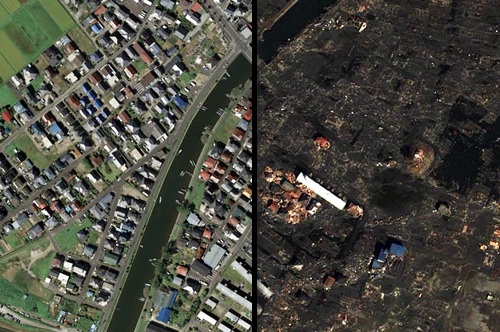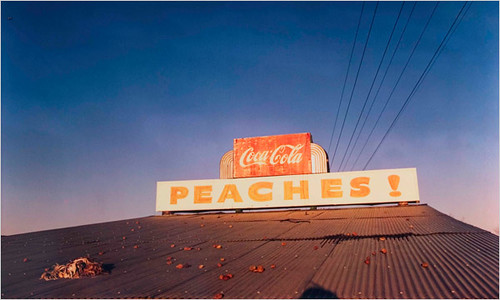I have nothing helpful to add to the Japan story, although I’ve been heartened to see that pretty good articles giving context for what’s going on have been going up around the net. New York Times on building codes, for example, and Boing Boing on how reactors work – and fail. (Bonus: The Atlantic on how this contrasts with Three Mile Island and a NYT visualization of the buildings at Fukushima.)
And then there’s this:
ABC in Australia took aerial photos from before and after the tsunami, and arranged them so you can move your mouse across the before image to reveal the damage—and, heartbreakingly, move it back again, an option available only online.



